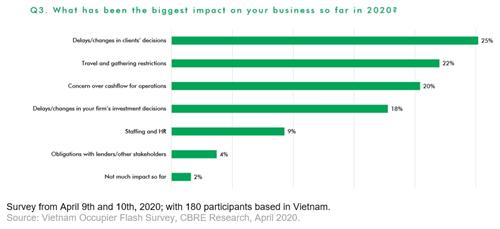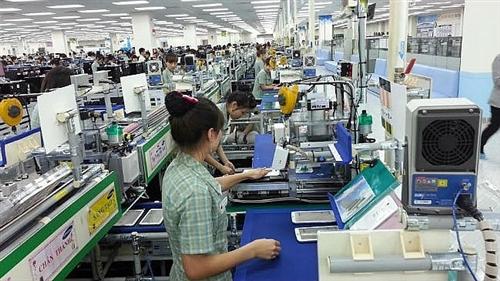First White Book on Vietnamese Co-operatives released
First White Book on Vietnamese Co-operatives released
The General Statistics Office (GSO) released its first White Book on co-operatives in Viet Nam on Tuesday. 
The paper provides information about the development levels of co-operatives in the country and its localities from 2016 – 2018. It also proposes solutions for co-operative development.
The white book was compiled based on data collected from the Ministry of Planning and Investment, the Ministry of Agriculture and Rural Development, and the Viet Nam Co-operative Alliance.
It shows that 2,569 new cooperatives were established in 2018, adding up to a total of 22,861 by December 31, 2018. The figures respectively increased by 9.5 per cent and 8.8 per cent year-on-year.
Also in 2018, the net revenue of the 13,958 surveyed co-operatives hit VND88.59 trillion (US$3.77 billion), up 9.6 per cent year-on-year. However, their pre-tax profit declined by 27.8 per cent to VND2.57 trillion.
The monthly per capita income of those co-operatives was VND3.84 million on average, increasing by 3.2 per cent from 2017 but still much lower than the VND8.82 million reported by businesses.
“The collective economy, of which co-operatives are the most important element, has gradually become a solid foundation of the national economy,” said GSO General Director Nguyen Bich Lam.
“Developing the collective economy is a consistent policy of the Party and State. However, co-operatives still need to make strong reforms to develop amid the country’s intensive integration,” Lam said.
“While the world saw profound global instability in the last few years, co-operatives across the country still developed stably. The number of co-operatives increased with their operational quality gradually enhanced,” Lam said.
Business White Book
The GSO has also released the 2020 White Book on Vietnamese Businesses.
The first edition of the White Book on Vietnamese Businesses was launched in July last year.
The White Book contains essential information assessing the development of enterprises across the country with a specific view of each locality from 2016 to 2019.
“The publication, to be published on an annual basis, provides an overall picture of the development of domestic businesses arranged according to sectors, business types and localities, serving as a reference for the Government, ministries, sectors and localities to design strategies, plans and policies for the sustainable and effective development of businesses on both national and local scales," Lam told Viet Nam News.
The business sector contributed over 60 per cent to the gross domestic product (GDP) in 2019, the book said.
In 2019, the country had 758,610 active businesses, 67.1 per cent of which operated in the service sector, 31.6 per cent in industry and construction, and 1.3 per cent in agro-forestry-fishery.
In the year, Viet Nam recorded economic growth of 7.02 per cent, marking the second consecutive year with growth of over 7 per cent.
According to business results as of December 31, 2018, the number of profitable businesses accounted for 44.1 per cent, break-even ones 7.5 per cent, and unprofitable ones 48.4 per cent.
“In order to improve the efficiency of enterprises, we must focus on the improvement of the legal environment, mechanisms and policies for the business sector, stronger reforms of the business environment, and cutting administrative procedures,” Lam said.
Head of the GSO's Industrial Statistics Department Pham Dinh Thuy said there needed to be mechanisms and policies to promote the restructuring of industries with a focus on manufacturing and processing, whilst making the most of the opportunity created by the Fourth Industrial Revolution to restructure businesses towards sustainability and creativity.

























